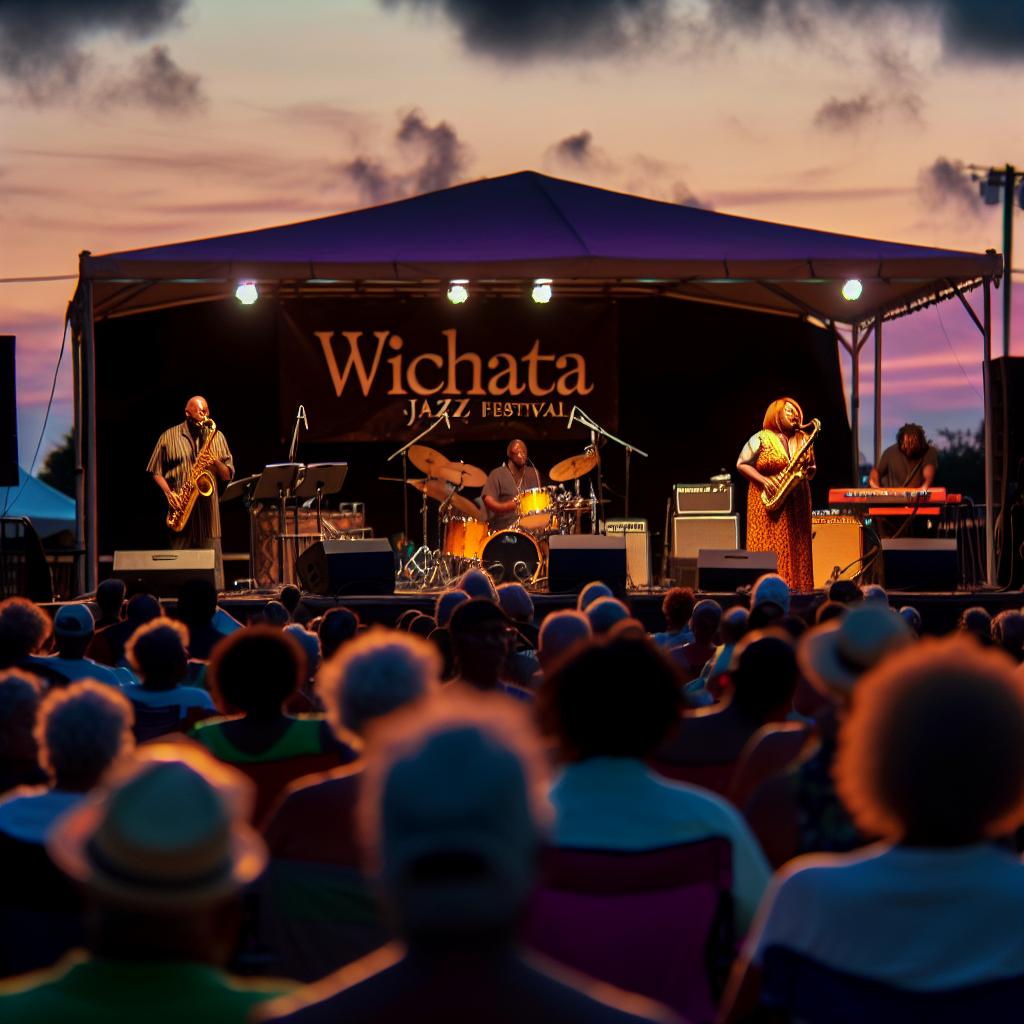Overview of the Wichita Jazz Festival
The Wichita Jazz Festival is a renowned event committed to the celebration and promotion of jazz music in the heart of Wichita, Kansas. Established in 1972, this festival has the distinction of being one of the oldest and most enduring jazz festivals in the United States. Through the decades, the Wichita Jazz Festival has garnered recognition for hosting a wide array of artists, offering a platform to both established jazz virtuosos and promising emerging talents.
Historical Background
The origins of the Wichita Jazz Festival trace back to the early 1970s. During this era, the festival was conceived with the intent of enriching the local cultural landscape. The primary goal was to provide residents of Wichita with the remarkable opportunity to witness live performances from some of the jazz world’s most esteemed artists. Since its inception, the festival has played a pivotal role in fostering a vibrant jazz community within the city, making it a staple of the local artistic scene.
Annual Highlights
The festival occurs annually during the spring season, typically in the month of April. It is characterized by a week-long series of captivating concerts, dynamic workshops, and insightful educational programs. Events associated with the festival are strategically spread across various well-regarded venues in the city, including theaters, clubs, and educational institutions.
An essential element of the festival is its dedication to education. This dedication is manifested through workshops that are specifically tailored for students and aspiring musicians. These programs are designed to facilitate learning from seasoned professionals, thus nurturing new generations of jazz artists.
Notable Performances
Throughout its storied history, the Wichita Jazz Festival has proudly hosted a plethora of eminent jazz musicians and ensembles. Attendees of the festival have been privileged to savor performances by acclaimed artists such as Dizzy Gillespie, Sarah Vaughan, and Herbie Hancock. By embracing both traditional and contemporary jazz acts, the festival effectively caters to a diverse audience, ensuring that there is something for every jazz aficionado.
Impact on the Local Community
Beyond its role as an entertainment event, the Wichita Jazz Festival exerts a significant impact on the local cultural economy. By drawing visitors to the city, the festival supports local businesses and offers a notable boost to the hospitality sector. Moreover, the festival reinforces Wichita’s identity as a dynamic hub for the arts, and particularly for jazz music.
Community Engagement
In addition to concerts and workshops, the festival involves robust community outreach initiatives. These initiatives often involve collaborations with local schools and community centers, aiming to broaden access to jazz music. By making jazz more accessible, the festival plays an instrumental role in cultivating a deeper appreciation and understanding of this rich musical genre within the wider community.
Future Prospects
Looking ahead, the Wichita Jazz Festival is poised to continue evolving in alignment with global trends in the jazz community. With a steadfast commitment to maintaining its position as a premier jazz event, festival organizers are consistently working on expanding the diversity of performers. Additionally, innovative programming is being incorporated to capture the interest of a larger audience, ensuring that the festival remains a dynamic part of Wichita’s cultural offerings.
For additional details about upcoming events and ticketing, interested parties are encouraged to visit the official Wichita Jazz Festival website.
In summary, the Wichita Jazz Festival stands as a testament to the city’s unwavering commitment to the promotion of jazz music. The festival’s ongoing success reflects the enduring popularity and cultural significance of jazz within the Wichita community, securing its legacy for future generations.

